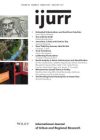This article critically reviews several claims underlying different positions in the debate on tenure legalization and empirically investigates them in a low‐income settlement in Buenos Aires, Argentina. Even though both tenure legality, in the form of property titles, and perceived tenure security have separately been shown to influence housing improvement, most research has taken a relatively rudimentary approach to their measurement, and little work has been done to examine their interrelations. These issues are taken up in the present article in which the legal–illegal tenure dichotomy embedded in standard perspectives on legalization is broadened to include intermediate levels of legality and subsequently linked to a social psychological perspective on perceived tenure security. The question of to what extent property titles facilitate access to credit is also examined. The results show that tenure legality and perceived tenure security are in fact closely related in the settlement under study, as higher levels of legality also imply higher perceived tenure security. Furthermore, both tenure legality and perceived tenure security are significant predictors of housing improvement and, consequently, settlement development. There was, however, no relation between tenure legality and access to credit.
Details
Written by:
JEAN‐LOUIS VAN GELDER
Digital Object Identifier (DOI)
10.1111/j.1468-2427.2009.00833.x
About DOI
Read full article as PDF
Read full article as HTML
See the references for this article
